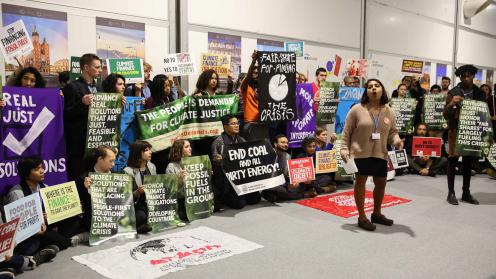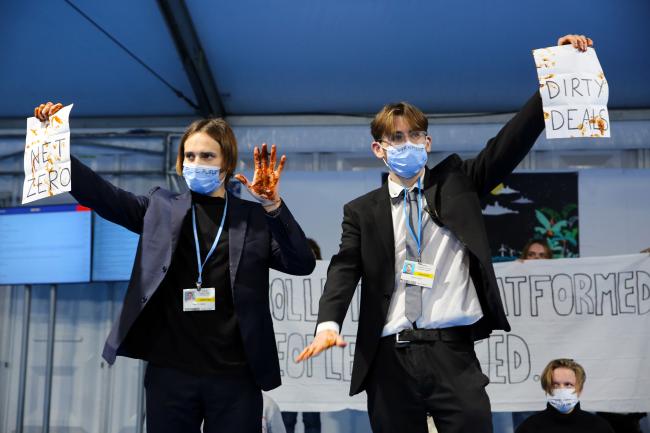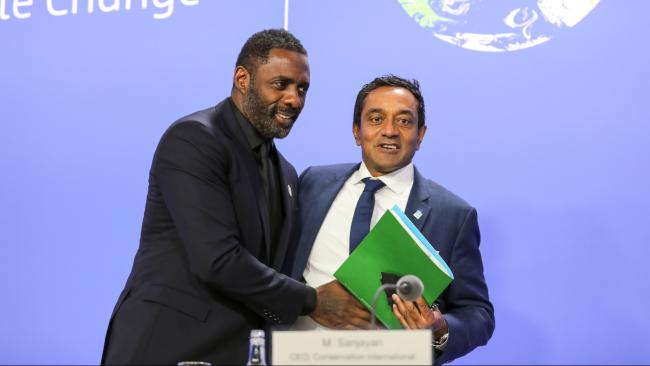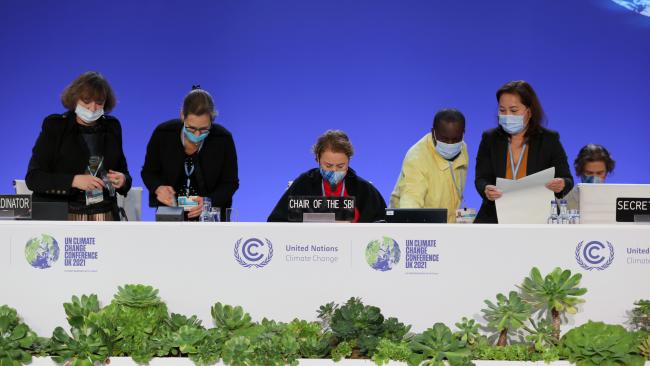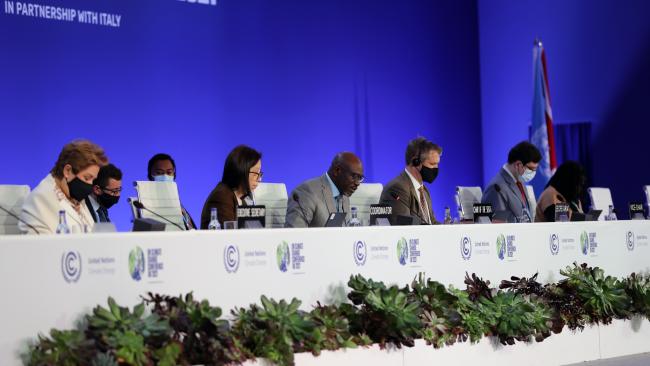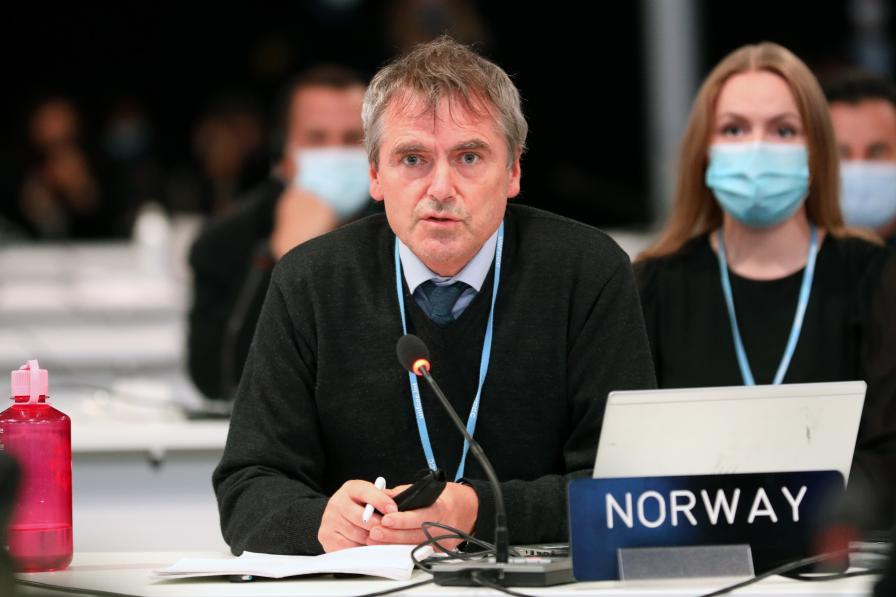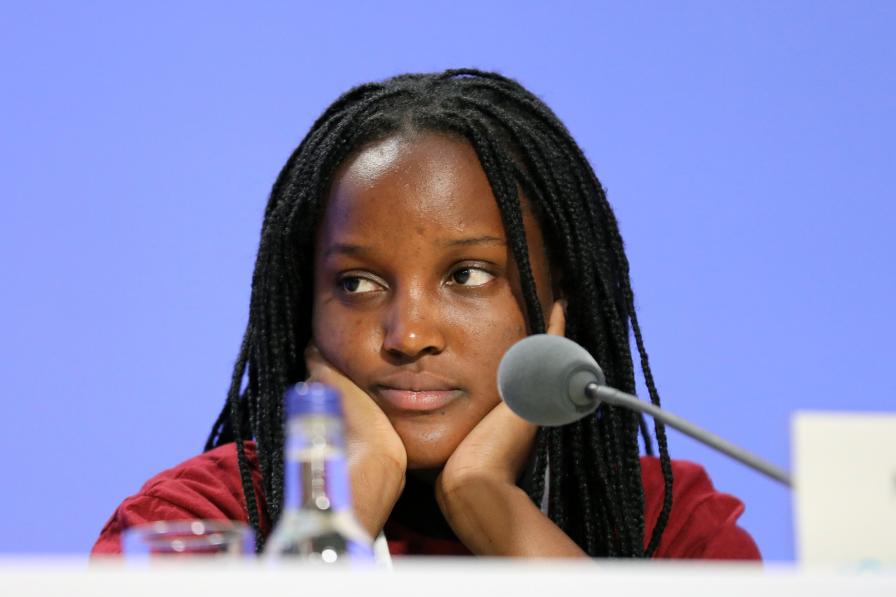An estimated 150,000 people marched through the streets of Glasgow for climate action, leaving the hallways of the venue emptier than earlier in the week. This was especially so with negotiators tucked away in rooms trying to resolve outstanding issues before the closing plenaries of the subsidiary bodies later in the evening and advance work on finance issues, which will continue through the second week.
Highlights included:
- Negotiations on finance
- The Subsidiary Bodies’ closing plenaries
- Events to celebrate “Nature Day” at the COP
To dig deeper, consider also reading the full ENB daily report.
Negotiations
Throughout the day, finance negotiations continued. Most of these negotiations are under the governing bodies (COP, CMP and CMA) and not the two subsidiary bodies. They therefore did not have the deadline to conclude today, but still have an enormous workload of thorny issues to resolve.
The day heard several calls from developing countries for climate finance to be of better quality and quantity. The goal of mobilizing USD 100 billion per year by 2020 has not yet been met, and some developing countries stressed that climate finance cannot be in the form of loans that increase the debt burdens of poor and vulnerable countries, particularly given the pandemic.
Developed countries pointed to their efforts to provide and mobilize greater climate finance and to improve transparency of their plans to provide finance, as a way to improve the predictability of climate finance flows, through biennial reporting under Article 9.5 of the Paris Agreement (the so-called ex ante climate finance information).
The Closing Plenaries of the Subsidiary Bodies
The Subsidiary Bodies undertake important technical work during the first week of COPs. It is often a crunch to conclude their work by the end of the first week, especially this year with additional work due to the postponement of the COP by a year due to the pandemic.
Still, there are limits to what technical work can achieve. There is sometimes a need for political-level guidance to help direct the development of technical rules. When this happens, issues are often forwarded to the second week of the conference for further negotiations. These issues included:
- Article 6 (cooperative approaches);
- Transparency;
- Loss and damage;
- Response measures;
- Adaptation; and
- Common time frames for nationally determined contributions (NDCs).
This leaves a lengthy list of issues to address in the week ahead. But, it also gives a sense of the issues that will be central to the final package agreed to in Glasgow. Negotiations will take place in consultations facilitated by ministers, further technical talks, and Presidency-led consultations. The exact balance among these three formats will be clearer on Monday, 8 November, when the Presidency unveils its plans in a stocktake session.
Around the Venue
In events outside the intergovernmental negotiations, the theme of the day was nature, both the blue seas and the green trees. A roundtable on Blue Finance brought together governments, the private sector, and civil society to discuss “investment-ready nature-based solutions.”
An event on nature and land use convened scientists, Indigenous Peoples, and governments to explore how working with nature can help achieve the Paris Agreement goals.
A Presidency event discussed the Forest Agriculture Commodity Trade (FACT) Roadmap, a new collaborative plan to leverage sustainable trade in agricultural commodities to tackle deforestation. Its work includes smallholder support and improving traceability and transparency in commodity chains.
Other events included:
- A Call for Ocean Action: Towards Ocean Health and Resilience;
- ClimateShot Global Action Agenda for Innovation in Agriculture; and
- Global Climate Action events on land use and tracking credible climate action.
To receive free coverage of global environmental events delivered to your inbox, subscribe to the ENB Update newsletter.
ENB images are free for use with attribution. For the Glasgow Climate Change Conference, please use Photo by IISD/ENB Mike Muzurakis.
